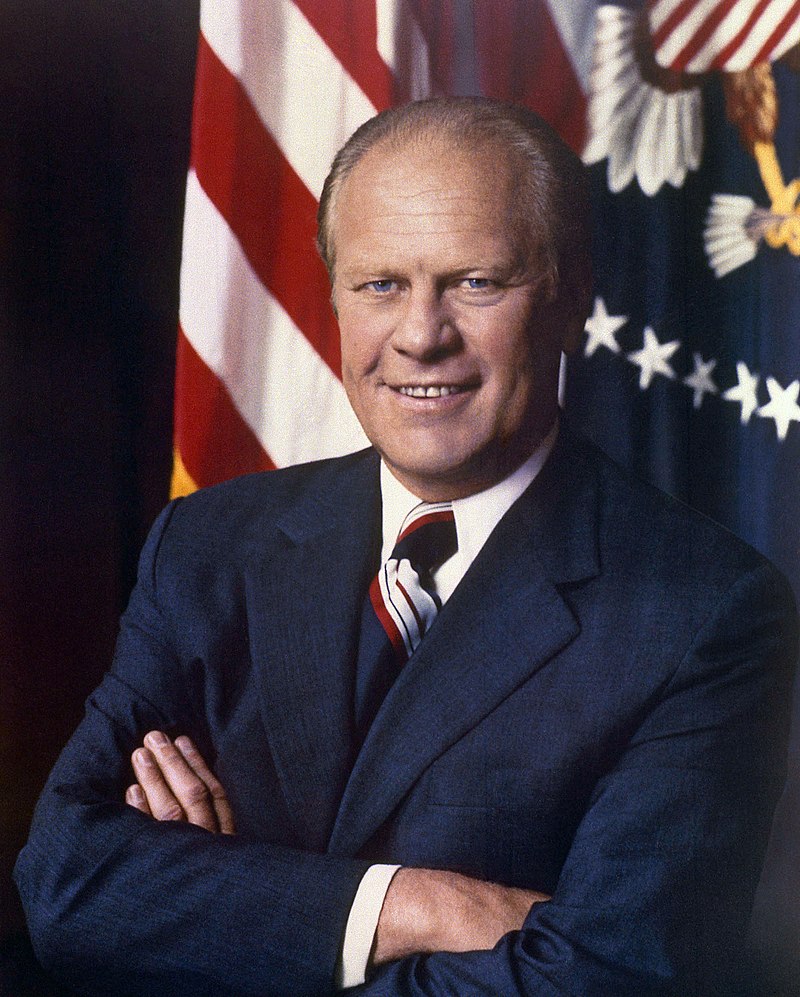Introduction
Many in politics admired Gerald Ford’s degree of trust and honesty. With Spiro Agnew’s departure, Congress nominated him because he told the truth and was recognized by both the Republican and Democratic parties for keeping his word. Gerald Ford was appointed by both the Senate and the House of Representatives because they wanted him to succeed Richard Nixon, who was also facing accusations.
Vice President Gerald Ford took office on August 9, 1974, after Richard Nixon resigned due to the Watergate crisis. Gerald Ford is the first and only person to hold the president and vice president positions without being elected. Gerald Ford’s presidency came to an end in 1976 when Jimmy Carter defeated him.
Gerald’s mother, Dorothy, a tough and tenacious lady, was one of the key persons who shaped his character. His mother used a different way of punishment to deal with his father’s strong temper. Gerald was forced to memorize Kipling’s poem If, which he had to recite every time he lost his anger.
His stepfather was all Dorothy had dreamed for in her first husband. He was well-liked in the community and was known for being honest, diligent, and kind. He was a man of honor, and he taught these traits in Gerald Ford when he was young.
In this article, discover more about the personality and trait of Gerald Ford.
Physical Attributes and Passion for Sports
Ford stands over 6 feet tall, with a crisp, erect posture and strong shoulders that befit a former athlete. Even at 61, he maintains a weight of 203 pounds, which is only 4 pounds more than his football-playing weight of 40 years ago. His eyes are deep blue, and his blond hair is thinning and graying. His nose was “clearly injured on the football field,” according to a seasoned Grand Rapids reporter. Ford and George Washington, according to their supporters, have a striking physical similarity.
Gerald Ford has been described as a cheerful extrovert who adores people. He tried but failed to learn the first names of all 60 Secret Service operatives assigned to him as Vice President. He has always been the center of attention since he goes into a room since he was a child.
Ford readily confesses that he seldom reads novels, but he makes time to watch professional football games on TV on Monday evenings and Sunday afternoons. He sits riveted to the TV on these special occasions, calling plays out loud and rejoicing when the teams implement his instructions. Gerald Ford also liked seeing his boys play football for their high school teams as congressmen, although they had been gravely wounded on multiple occasions. When Ford picks up the newspaper at 6 a.m. every morning, he usually goes right to the sports section.
Open-Minded and Curious
Curiosity and a strong desire to understand everything they could drove Gerald Ford. He was open to new ideas and methods of doing things, as long as they were backed up by solid logic. He was continuously on the lookout for new interests, hobbies, and study topics. When inspiration hits, he dives headfirst into their new passion, studying everything he can.
Objective and Analytical
Gerald Ford is concerned about the truth. Rather than seeking solace in dogma or preconceived notions, he seeks to comprehend what is truly going on under the surface. Consequently, they can be counted on to oppose bias and disinformation, even when doing so is complex, and they expect others to be truthful with them in return.
He examines everything they come across, from study data to the behavior of those in their immediate vicinity. This endows him with an uncanny ability to identify unexpected patterns and connections that others might miss.
Dissatisfied and Impatient
Gerald Ford can’t help but fantasize about how things could be even better. He was always looking for new challenges to solve, new topics to learn about, and new methods to approach things. This approach might become burdensome if taken too far; he continuously tried to reinvent the wheel rather than consistently address their demands and obligations.
He was proud of his expertise and willingness to share it. However, he wasn’t always patient when it came to explaining their reasoning. He gives up with a dismissive “never mind” if others don’t follow along or appear adequately engaged.
Finally, Gerald Ford believed that reason was the route to a better and happier world. He may downplay the relevance of irrational values like emotion, compassion, politeness, and tradition at times. Consequently, even if his intentions are pure, he may come off as insensitive or unpleasant unwittingly.
Conclusion
Ford was described as open, personable, upfront, honest, and caring by all sources. He looked to enjoy most people and, although being a 30-year veteran of political battles, he developed surprisingly few enemies along the road.
US Presidents | ||

